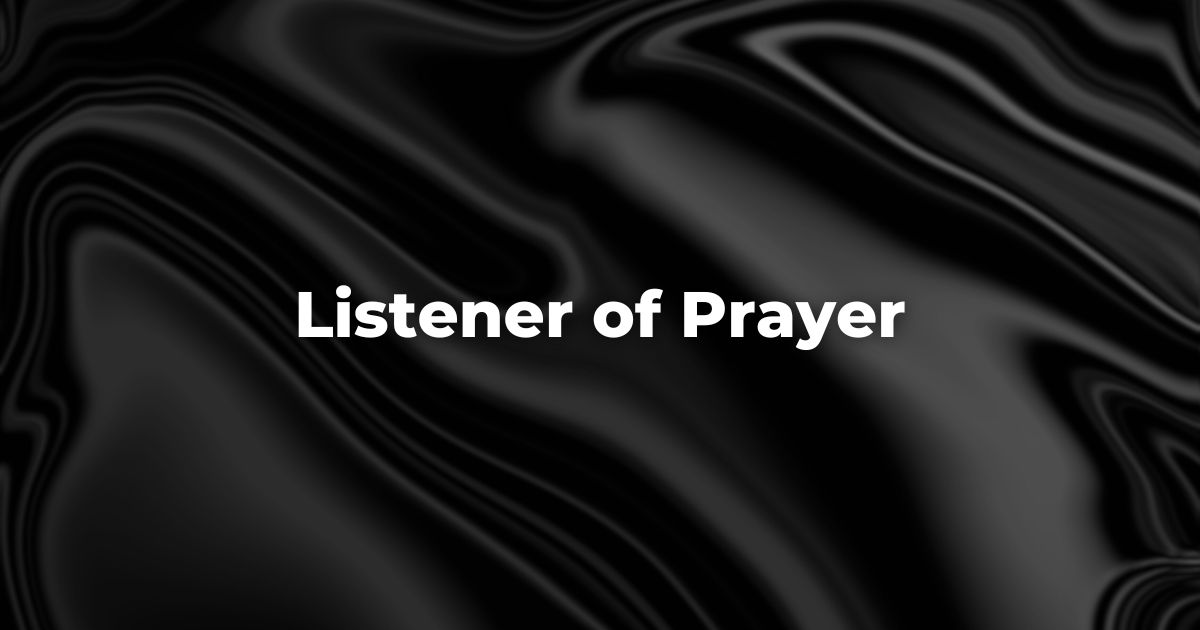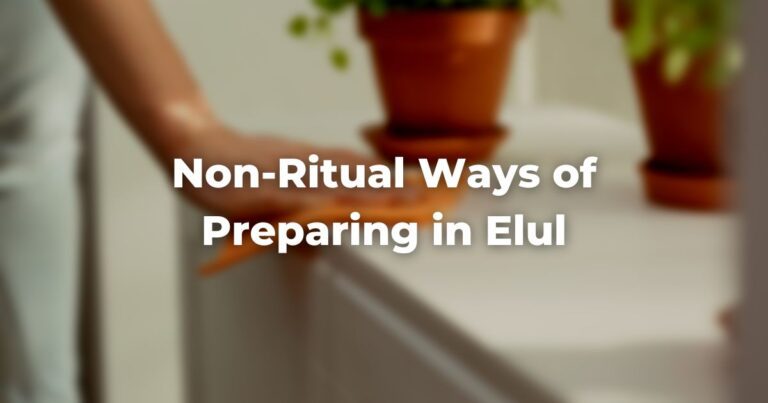Many of the prayers that we say have an introduction, a body of the text, and a closing. In Hebrew the introduction is the peticha, the body is the guf, and the closing is the chatima.
In the weekday Amidah, or central prayer, most of the prayers follow this format. When chanted aloud, all but one of the middle 15 blessings, sound the same. The exception is the section known as Shema Koleinu, Hear Our Voice:
Hear our voice, Adonai, our god. Spare us and have mercy upon us. Accept our prayer with mercy and compassion, for God hears prayers and supplications. And do not turn us away empty from before You, for You hear the prayer of your people Israel with mercy. Praised be You, who hears prayer.
This ending “who hears prayer” is a chatima. What is interesting is that we add this chatima whenever we don’t have a preexisting category that our request fits into.
The nature of a chatima acts a little like an organizer. The rabbis are very nervous about the invention of new brachot, and therefore encourage us to use a selection of these chatimot. However, whenever our prayers do not fit into some of the boxes, we tend to fall back on the chatima, of “who hears prayer.”
One example of using the “Praised be You, who hears prayer” chatima is at the end of the Travelers’ Prayer. Most of the prayer are requests that God help protect us from various dangers that we might encounter on a journey, and we then conclude with our chatima, where we ask God to hear our prayer and our anxieties.
We don’t praise God for answering our prayers in the above blessing, nor do we ask God to accept our prayers. It does say, “Do not turn us away empty … ” The opposite of empty is full. The opposite of “answer our prayer” would be to “reject our prayer.”
To me, this means that if we assume that we pray for God to answer and fulfill our prayers, then according to the plain text of the blessing itself, our prayer is misaligned. We must not expect that our prayers be answered, but rather for us to be filled up by our prayers. The genre of prayer, in Judaism should be one where we express the anger, sadness, joy, and fear that accompany us in our day to day lives.
Our prayers should be like putting gas in a car’s tank.
We pray and that adds a few bucks of gas to the soul. The point of prayer is to build us up spiritually.
Being built up could be a lot like a cup of coffee with a rabbi or a counseling with a therapist. You talk; and they listen. The power of silence is quite powerful. Many people can just talk for hours about themselves if you let them.
God is often associated with silence. In I Kings 19, Elijah the Prophet experiences a storm, followed by a fire, followed by an earthquake. But God was not in any of them. God was in “the still small voice” after all of those events.
This “still small voice” is picked up on in “Unetaneh Tokef,” the famous medieval piyyut, or liturgical poem, by Rabbi Amnon, where he writes that “the still small voice” is in whispered in conjunction with “a great shofar being sounded.”
Picking up on these themes, biblical theologian Professor Benjamin Sommer, notes in his magnum opus, Revelation and Authority, Sinai in Jewish Scripture and Tradition, the frequency of the word kol or voice during the chapters describing the revelation at Sinai. Simultaneously, Professor Sommer comments on the Ropshitzer Rebbe in the Zerei HaKodesh which notes that the first letter of the 10 Commandments is aleph, a silent letter. Professor Sommer then says, “at Sinai, Israel heard nothing specific, but it did experience a revelation, a wordless signification of God’s commanding presence.”
In the “Book of Job,” after losing his children, wealth, livestock, and having a wife who encouraged him to curse God, Job had three friends that arrived to comfort him.
First, the four of them sat in silence for a week. Letting the quiet of the moment speak for itself. After this time, Job, in utter despair, begins his monologue, “perish the day on which I was born.” Upon concluding his opening monologue, each of the friends start talking. They offer mediocre replies and answers to his fair question of ‘why is this bad stuff happening to me?’
By giving these feigned platitudes, they dismiss the internal turmoil and tempest that is swirling around within Job. When we do not listen and we do not properly acknowledge what is going on in the lives of those around us, we dismiss them and their emotions. This is what those three “friends” brought to Job.
Job didn’t need these attempts at platitudes.
Job needed to be heard.
When Job’s friends were listening, they were doing their best job.
What we as Jews can learn from all of this is that we need God to listen to us
Most people know most of the solutions to most of their problems. God does not drop a million dollars into our bank accounts when we have financial difficulties or make you happy after a loved one passes. God does not stop illness from happening. What God can do is comfort you, by being a sympathetic, non-judgemental ear. Our prayers act as that means of telling God what we are feeling at this particular moment.
We need to be truly heard and understood. When we ask God to “hear our prayer” we ask that we be heard. Whether it be our anticipations, our anxieties, or our aspirations. God can’t answer prayers the way a candy bar is purchased from a vending machine. God can fill your soul by listening to your words.
I encourage you to use your prayers as a means of sharing and expressing that which you need to say. Prayer, in its truest form, can be a power act of expression and healing.
Author
-

Rabbi Alex Hamilton was raised in Oklahoma City at Emanuel Synagogue. He graduated Phi Beta Kappa from Rutgers University, where he served as president of the largest Hillel in North America. He studied for a year of intense learning at Yeshivat Hadar in New York City. He graduated in May 2023 from JTS where he also received a Masters in Hebrew Bible. He is currently serving as an active duty Navy Chaplain in Yokosuka, Japan. He is a USY, Ramah, Nativ, and Conservative Yeshiva alum. He happily married Adeena in September of 2020 and they recently adopted a black lab named Buddy.
View all posts




